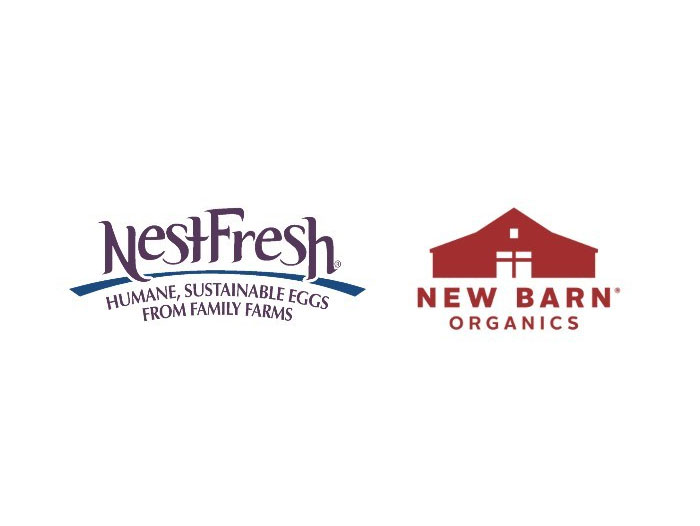New Barn Organics Launches Regenerative Organic Certified Pasture Raised Eggs
November 30, 2021 | 3 min to read

ROHNERT PARK, Calif. — When New Barn Organics decided to partner with NestFresh Eggs earlier this year on its first egg products, co-Founder Ted Robb wanted to ensure the brand’s deep commitment to premium organic products was a focal point of this new partnership.
“NestFresh is one of the largest egg producers in the country, and there was no question that they could handle the day-to-day operations of our brand,” says Robb. “But what really excited our team was their genuine desire to support our deeper mission and purpose, which starts with the belief that regenerative organic agriculture is essential to creating a healthier food system for future generations. We couldn’t be more excited to be their partners in launching the first nationally distributed Regenerative Organic Certified (ROC™) eggs.”
New Barn’s deep commitment to regenerative organic agriculture led the brand to certify its new pasture raised eggs through the Regenerative Organic Alliance (ROA). The only existing national standard for regenerative organic agriculture, the ROA’s rigorous certification program is designed to take existing USDA Organic standards to new – and even more environmentally-friendly – heights. This holistic approach is a natural fit for New Barn. “We’re really thoughtful about the ingredients we use in our products,” says Robb.
To be eligible for the ROC program, a brand’s products must adhere to the program’s three core tenets: Soil Health, Animal Welfare, and Social Fairness. This three-tier system works in harmony to restore the planet’s soils, provide a living wage and safe conditions for farm workers, and protect the animals who are part of our agricultural system. According to Elizabeth Whitlow, the ROA’s Executive Director, “We wanted to create a high-bar standard to demonstrate and clarify what regenerative can and should be: a holistic type of agriculture that regenerates resources and considers all players in the farm system, from the soil microbiome to the animals to the workers.”
Whitlow asserts that this type of holistic agriculture is beneficial to the environment, as well as the creatures that live within it. “We believe regenerative organic agriculture has the potential to address many of today’s pressing problems, including the climate crisis, factory farming, and fractured rural economies,” says Whitlow. “Building healthy soil and increasing organic matter is proven to sequester more carbon and make farms more resilient to flood and drought.”
This style of farming is reminiscent of early American agricultural practices, many of which have been replaced by large-scale industrial farm operations today. “Small-scale family farming is part of the story for so many American families, including my own,” says Robb. “Our current food system has damaged a core part of who we are as a nation. We have a responsibility – and a massive opportunity – to repair and restore our farms for a more abundant and prosperous future that takes better care of the land, the animals, and our fellow humans.”
And with many consumers looking to brands to provide more transparency around food sourcing, New Barn is leaning into storytelling about their supply chain to celebrate this welcome consumer trend. Robb explains, “We believe the ROC standard offers us a credible way to provide our consumers with the assurance that our products are meeting their expectations.”
By leading the way with regenerative organic pasture raised eggs, New Barn aims to become a household brand name that Americans trust to make ethically and sustainably sourced dairy-free products. “From our almond milk made from dry farmed almonds to our regenerative organic eggs,” says Robb, “we’re solidly committed to a healthier future for food and farming in America.”
